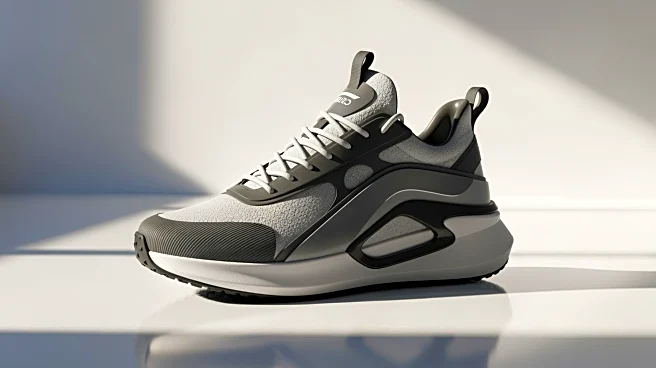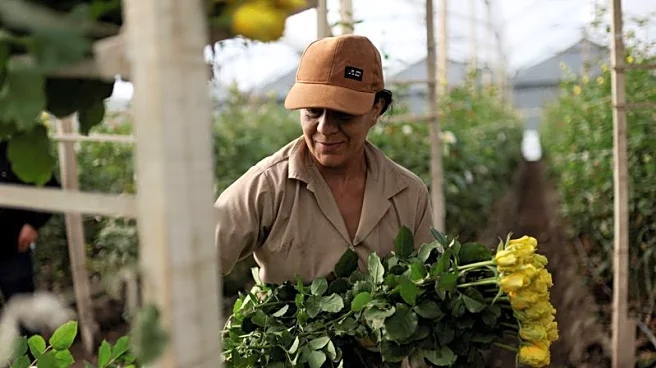What's Happening?
Nike has announced multi-year off take agreements with textile-to-textile recycling startups Syre and Loop Industries, aiming to reduce its reliance on virgin polyester. These agreements are crucial for
securing financing to scale emerging recycling technologies. Nike's commitment to recycled materials is part of its broader sustainability goals, as outlined in its 2023 sustainability report. Syre, backed by H&M Group, will become Nike's lead strategic supplier for recycled polyester, with plans to build a commercial-scale recycling facility in Vietnam by 2027. Loop Industries will supply Nike with its chemically recycled polyester resin, Infinite Loop Twist, as it constructs its first commercial-scale facility in India.
Why It's Important?
Nike's move to secure long-term agreements with recycling startups marks a significant step in the fashion industry's shift towards sustainability. By committing to recycled fibres, Nike is not only reducing its environmental impact but also setting a precedent for other major brands. This initiative supports the scaling of recycling technologies, which is essential for meeting ambitious sustainability goals. The agreements with Syre and Loop Industries could lead to increased production capacity for recycled textiles, benefiting the industry by providing more sustainable options for consumers and potentially reducing the demand for virgin materials.
What's Next?
Syre's Vietnam facility is expected to begin construction in 2027, aiming to reach a production capacity of over 3 million metric tonnes by 2032. As Syre's recycled material enters the market, it will be incorporated into select Nike apparel lines. Loop Industries' facility in India will also contribute to the supply of recycled polyester resin. These developments could encourage other brands to adopt similar sustainability practices, potentially leading to a broader industry shift towards circular materials. The success of these initiatives may influence future policies and investments in sustainable textile production.
Beyond the Headlines
Nike's agreements with Syre and Loop Industries highlight the growing importance of circular materials in the fashion industry. This shift not only addresses environmental concerns but also presents ethical and economic implications. By investing in recycling technologies, Nike is contributing to a more sustainable supply chain, which could lead to long-term benefits for the environment and society. The partnerships also underscore the role of innovation in achieving sustainability goals, as companies explore new methods to reduce waste and promote responsible consumption.









